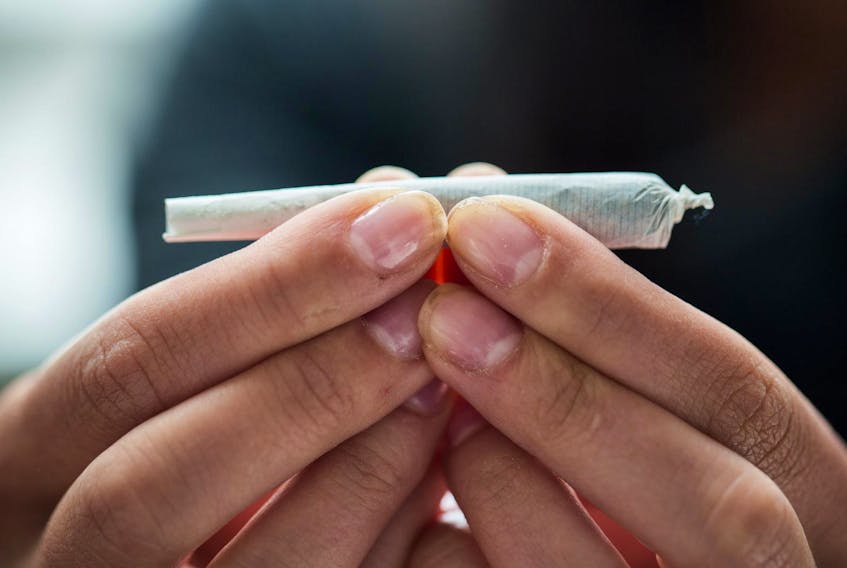Researchers who pored over the blood work of more than 3,000 drivers involved in crashes in British Columbia have concluded cannabis was a non-factor when it comes to responsibility for those crashes.
But don’t take that as licence to roll another number for the road, said a Halifax addictions expert who co-authored the study.
“I’ve witnessed the evidence over 20 years,” said Dr. Mark Asbridge, a researcher and professor at Dalhousie University’s department of community health and epidemiology.
“My starting point would be the same back then as in the early years — any behaviour that has the potential to impair you when you operate a motor vehicle should be avoided. That includes cannabis, the use of certain kinds of medication, prescription medications, alcohol, cellphones. Those kinds of activities and behaviours need to be avoided within the context of operating a motor vehicle that has the potential to kill people.”
But it’s clear that cannabis is relatively mild on the spectrum of driver impairment — although you have to consider factors such whether you’re a newbie or a regular user — especially compared to alcohol.
“Cannabis does impair marginally and increases crashes,” Asbridge said. “Probably it’s closer to a 30 per cent increase compared to alcohol, which can be a 200 to 300 per cent increase of a risk of a crash.”
Methods
The B.C. study focused specifically on the factor of driver responsibility. When you rule out other factors in a crash — weather, another vehicle involved and so on — you’re left with the question of the driver’s culpability.
The researchers — led by Dr. Jeff Brubacher, an emergency doctor and clinical toxicologist at the B.C. Drug and Poison Information Centre — obtained toxicological results on 3,005 injured drivers who showed up at seven ERs across B.C. The team also obtained police reports on 2,318 of the drivers.
Alcohol was detected in 14.4 per cent of drivers, THC (the mood-altering chemical in cannabis) in 8.3 per cent, other drugs in 8.9 per cent and sedating medications in 19.8 per cent.
There was no increased risk of crash responsibility in drivers who had less than two nanograms of THC per millilitre of of blood and a “statistically non-significant” increased risk of crash responsibility for drivers with less than five nanograms per millilitre.
Sedatives stand out
Asbridge pointed to the blood test results that showed sedating medications were by far the most common drug found in the injured drivers’ blood.
“So when you look at what we’re doing from a drugs and driving perspective in Canada federally, we actually are focusing on cannabis, ... opioids and cocaine but we’re not looking at benzos (benzodiazepines) and a couple of other drugs that we should potentially be concerned with.”
The introduction of edible cannabis products in the fall will complicate the cannabis/driving debate.
“Edible cannabis takes a lot longer to feel its psychoactive effects,” Asbridge said. “An hour after you have an edible, you’re going to start to really get those intense effects, and that changes the landscapes altogether in conjunction with driving.”
Asbridge referred to the term “greening out,” when people overconsume cannabis to the point of poisoning themselves.
“People will pop a brownie or an edible, and they say, wow, I don’t feel a thing. I’m going to have another one. And that’s like, holy s--t, now everything is happening at once, and I’ve taken twice as much as I should have and you green out and you end up in the emerg having cannabis poisoning or whatever.
“This is a whole opening of a different can of worms from a public health perspective.”
RELATED:









